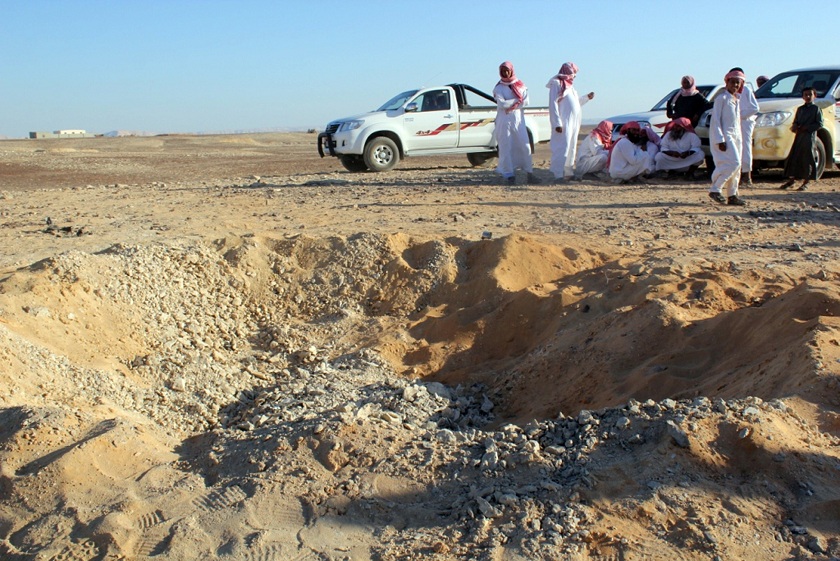Rached’s latest documentary highlights the trials of girls living on the streets
CAIRO: A young girl stuffs a shirt up her blouse pretending to be pregnant. She and her friends playfully tease her that there are many possible candidates for the baby’s father. “He’s ibn el shaab (a son of the people), they jest. Though the audience laugh along with the girls on screen, the stoicism of their humor is surprising.
For their friend, Abeer, it is her reality. Unsure of whom the father of her unborn child is, she looks to her friend Tata for protection from her father’s threats to kill her and her child, supposedly for disgracing the family.
These are the lead characters in director Tahani Rached’s latest documentary film, “El Banate Dol (Those Girls). Rached presents a candid view of teenage girls living on the streets. Girls we have passed on the streets of Cairo on countless occasions with little more than a cursory glance. Rarely do we give a thought to the dangers they are exposed: to drugs, rape, abuse, police raids and even kidnapping by other street children.
Rached, along with a few members of her production team, spent a few months living among the girls before she even began to film. “For me, the most important time is before filming. You live with the people you’re going to film. You start to understand what you want to show, what to highlight. You know who the star characters will be, she explains.
Tata is fiercely independent, strong-willed, with a strident bravado and a captivating beauty that seems out of place in her surroundings and she was chosen as the star of the show. She became Rashed’s assistant, carrying the camera for her. “She made me feel safe, says Rached. Tata, though quite a charismatic character, shares the spotlight with Dunya, Hind and Maryam. Abla (respectful endearment meaning “big sister ) Hind, a middle class woman who sought an outlet for her maternal instincts when she was having difficulty conceiving a child of her own, exemplifies humanity as she bestows the girls with non-judgmental, unconditional love.
Though, the director explains, she felt Tata had a responsibility to the film, to present their story truthfully. “During the film, she drove me crazy. Tata would go on about her crush on Ragab, a fellow street child who was arrested, or be high from sniffing glue (kolla) or taking pills (birsham) which frustrated Rached. However, it is precisely those instances that gave the film its incredible humanity.
“I see their lives as they live it, while they’re filming, says Yousry Nassrallah, a fellow director. “This is what gives the film its strong cinematic quality.
Though at times, the characters seem to be performing for the cameras, as Tata boasts about standing up to a policeman, it only helps in contrasting with the moments where Rached captures their true raw emotions. Their lives became glaringly real; the film honest.
“The girls are beautiful . They laugh, they cry, they dance, they sing, they ride horses, they fight among themselves and against guys, they smoke, they inhale glue, speak of politics, they fight with fathers that show up every now and then. And then, yes, it is very important, they give birth and nurture their babies. To put it simply: they live, Nasrallah writes of the documentary.
Rached showed the film to the girls before she shared it with a wider audience. They saw it as a “family video. They laughed and made comments about how they appeared on film, she relates.
“El Banate Dol was the only Arab film to be officially shown during this year’s Cannes Film Festival, and was well-received by the critics.
Some 136 hours of film were edited to create the 68-minute documentary. After watching the footage that survived the editing process, one continues to be haunted by the girls and some of the images. Their heroism is evident in the way they rally together to care for a newborn baby, painstakingly washing a styrofoam box that acts as a makeshift crib.
And it is not a fleeting glimpse at their lives; watching the film is an eye-opening experience. Though told in the present, it remarks about their future, “What, I wonder, will your destiny be? asks a child as he holds a baby in his arms. A mother talks animatedly about the day she will send her daughter off to school. The film captures their lives on the street now, and in the future. Where else can they go?
Above all, Rached is challenging the audience. Abla Hind tells the audience, “If you had to live their lives, not for an hour, but 10 minutes, you wouldn’t be able to bear it.
Rached doesn’t attempt to explain what drove the children to live on the street. She doesn’t provide answers. Rached is daring all of us to take notice of these girls. We can no longer categorize them as one faceless entity, “street children, and brush them aside. She’s daring us to see them as human, as individuals. She’s daring us.
Tahani Rached was born in Cairo 1947. She studied at Montreal s Ecole des Beaux- Arts for two years before working with community groups and then turning to cinema. She began her career in 1973 with Pour Faire Changement, a documentary produced by Le Videographe.
In 1979, her first feature film, “Les Voleurs de Jobs (Job Thieves), revealed her distinctive view of the world. A documentary on immigration, it demonstrated her ability to capture reality. This was followed by a series of six half-hour documentaries for Radio-Québec on Quebec s Arab community.
Since her cinema debut, she has directed nearly 20 films or videos. Among her most well-known films are “Four Women of Egypt (1997) and “Sorida, Woman of Palestine (2004).
For more information about the movie, visit www.studiomasr.com
